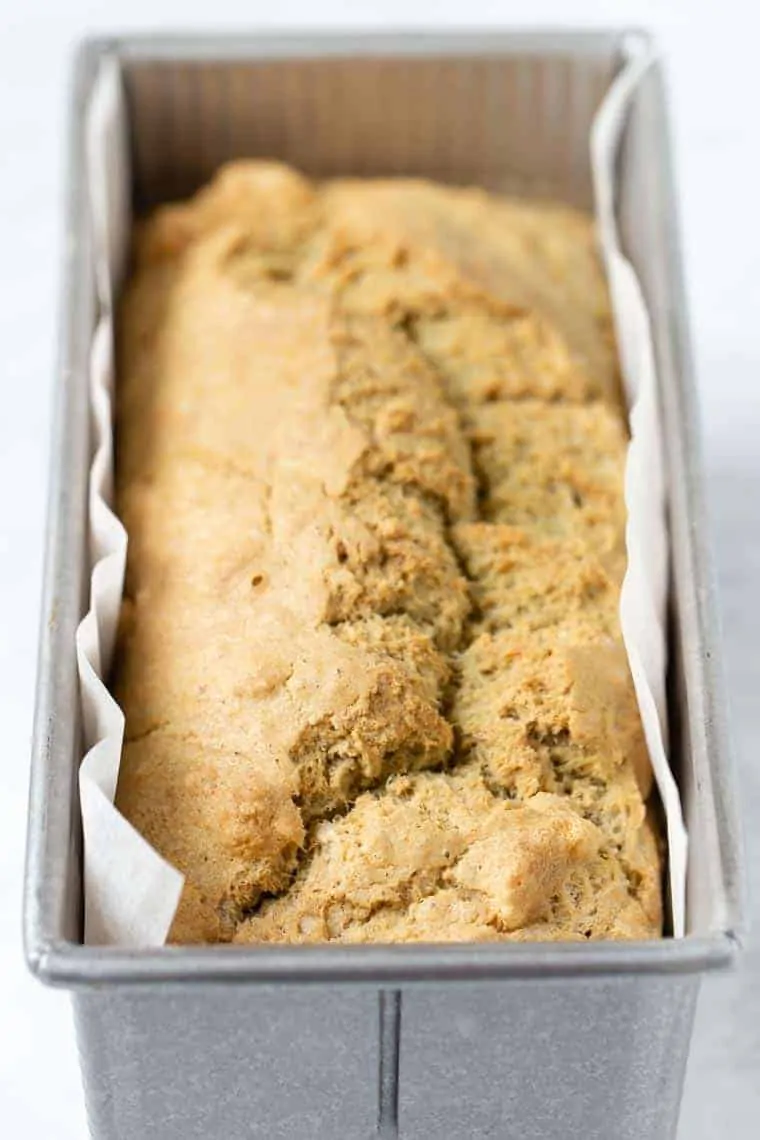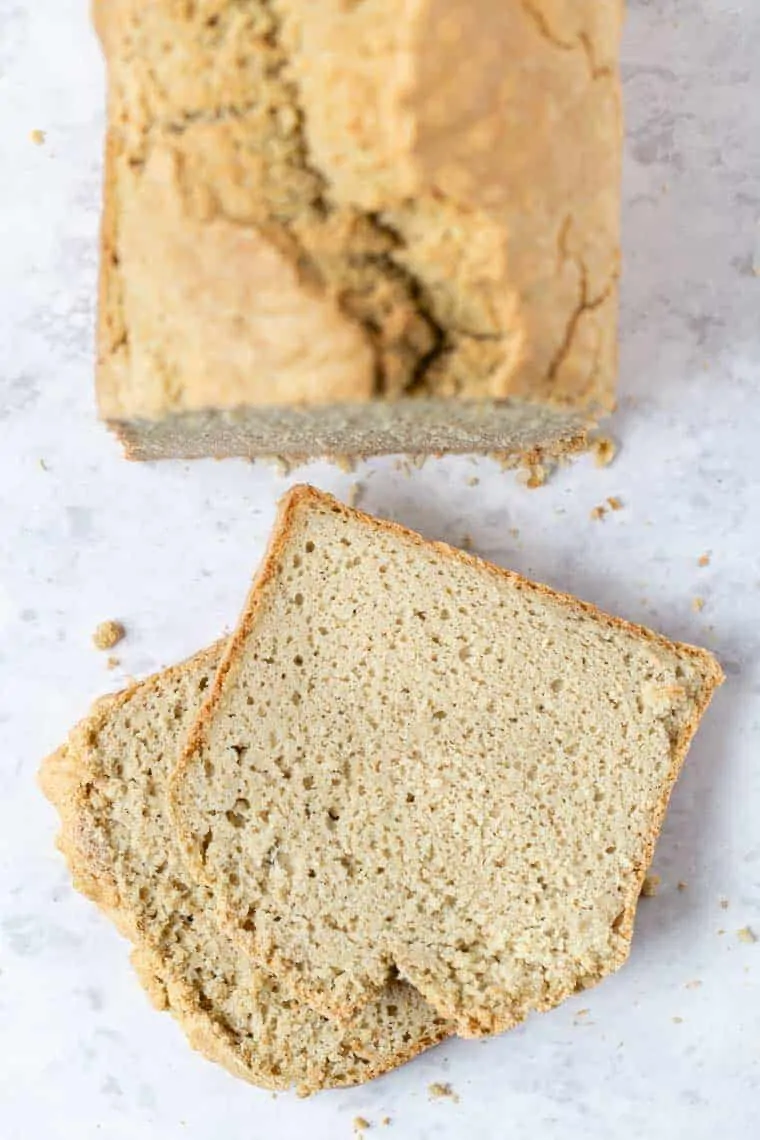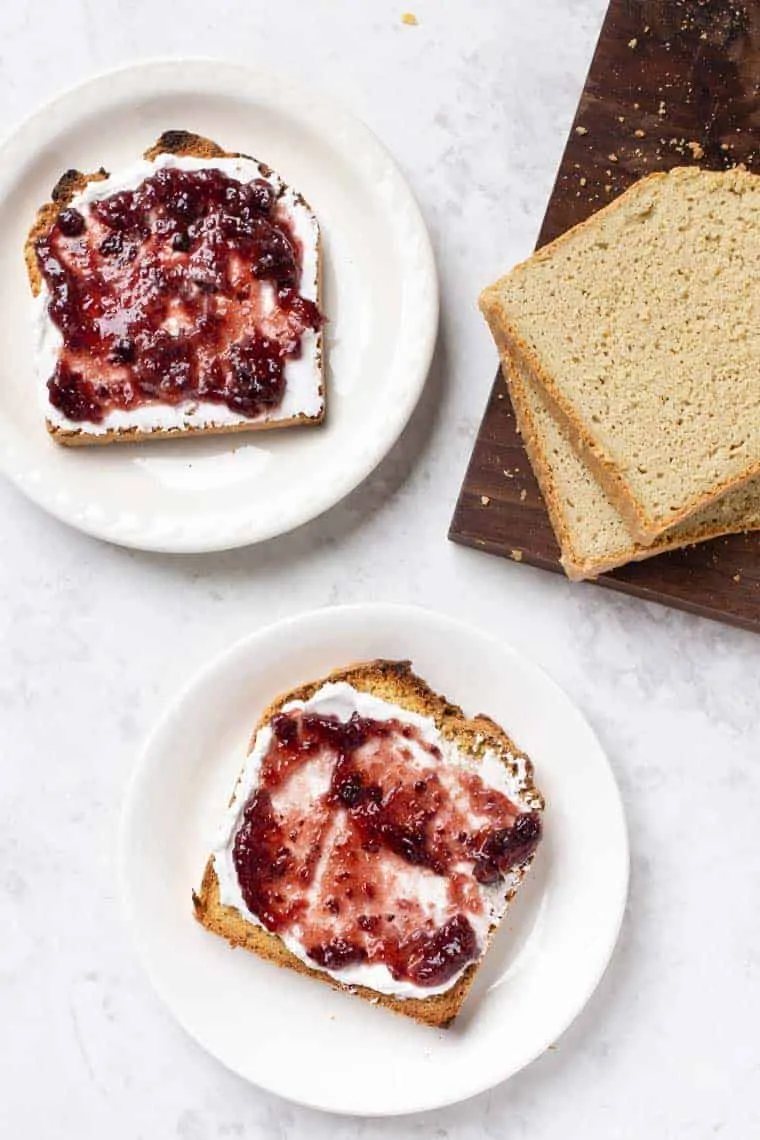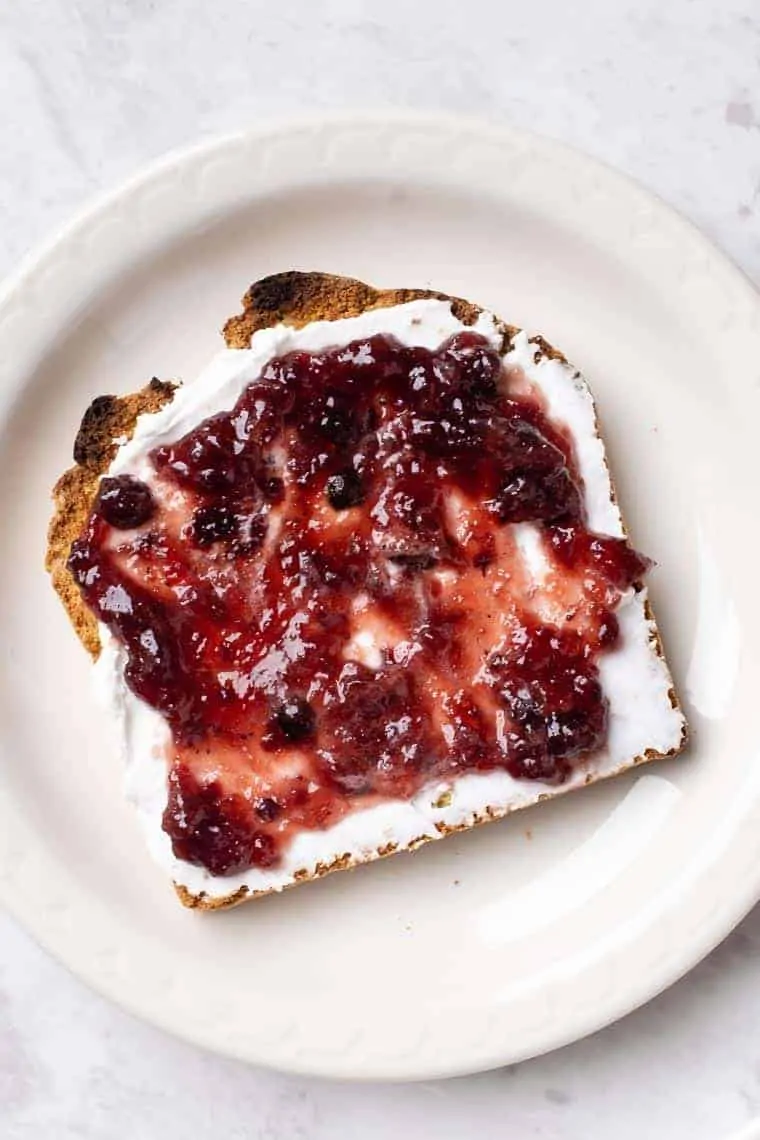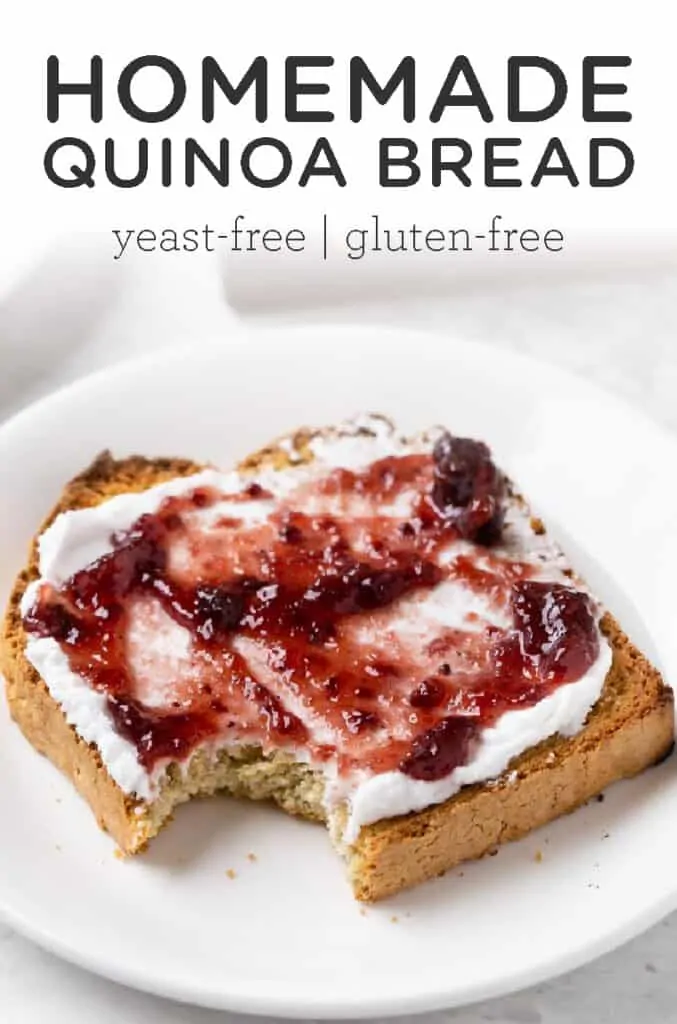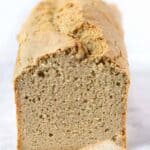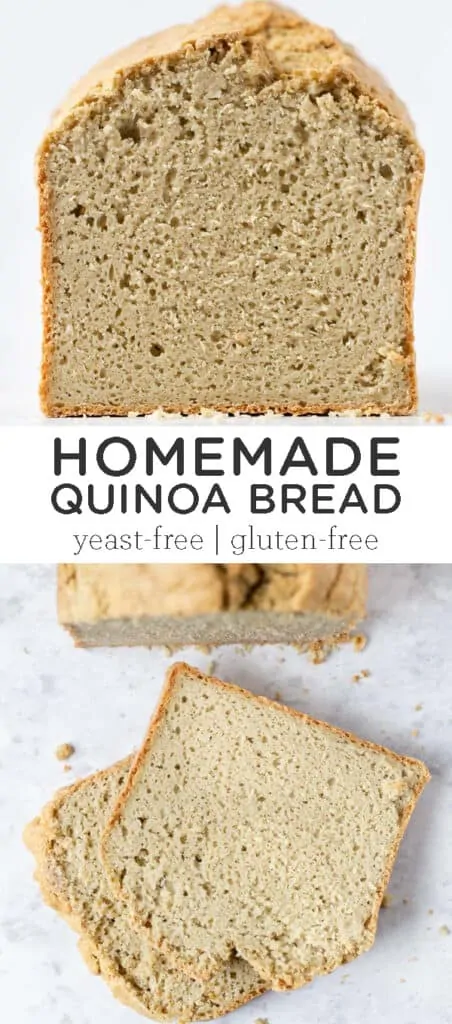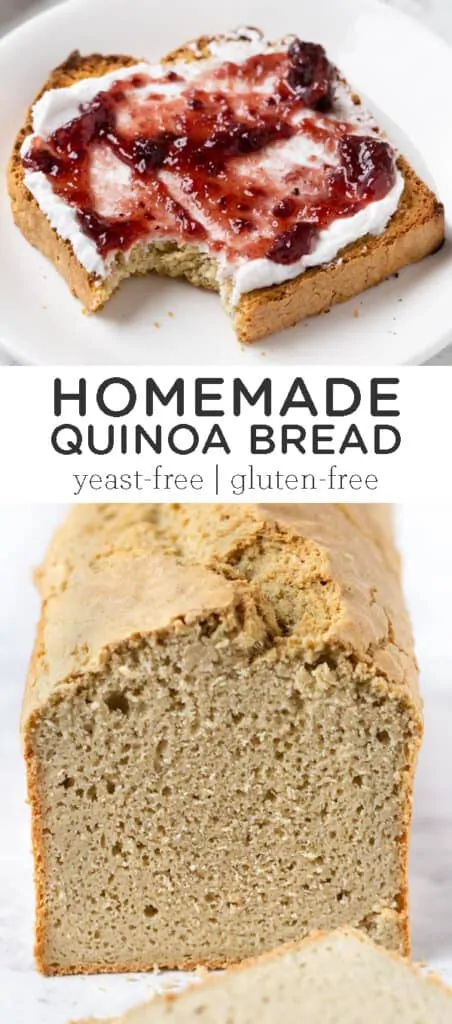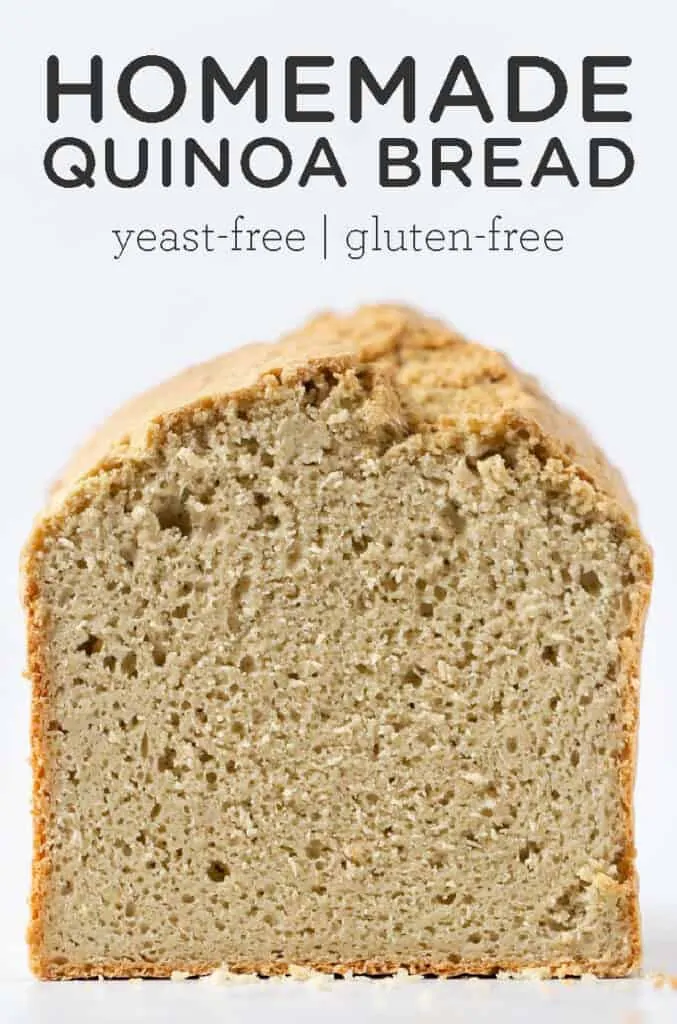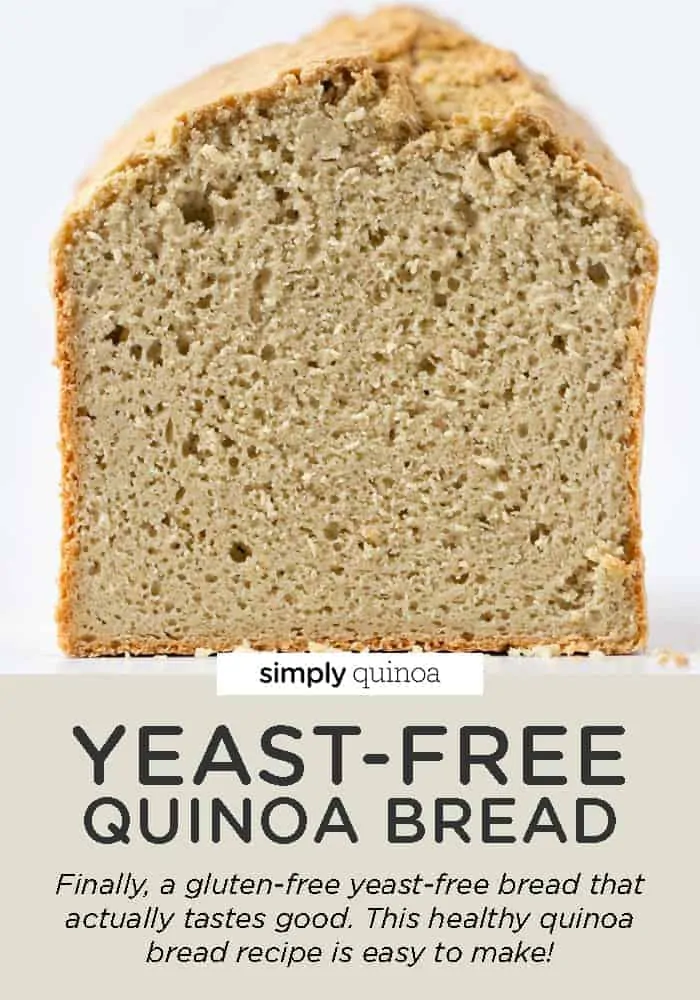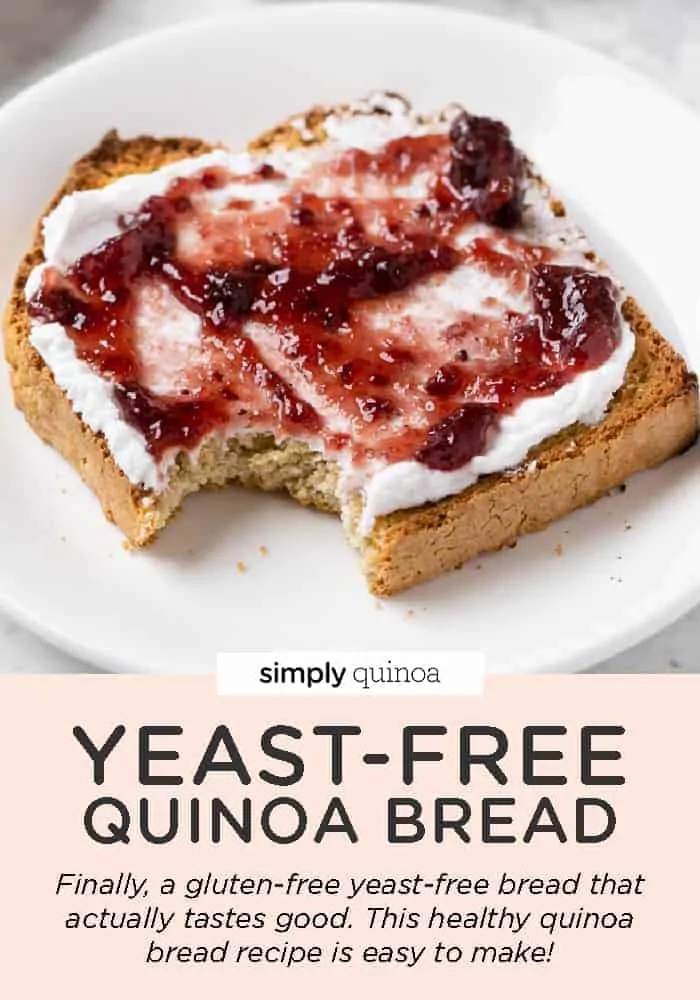Finally, a gluten-free yeast-free bread that actually tastes good. This healthy quinoa bread recipe is easy to make, toasts up wonderfully and tastes great!
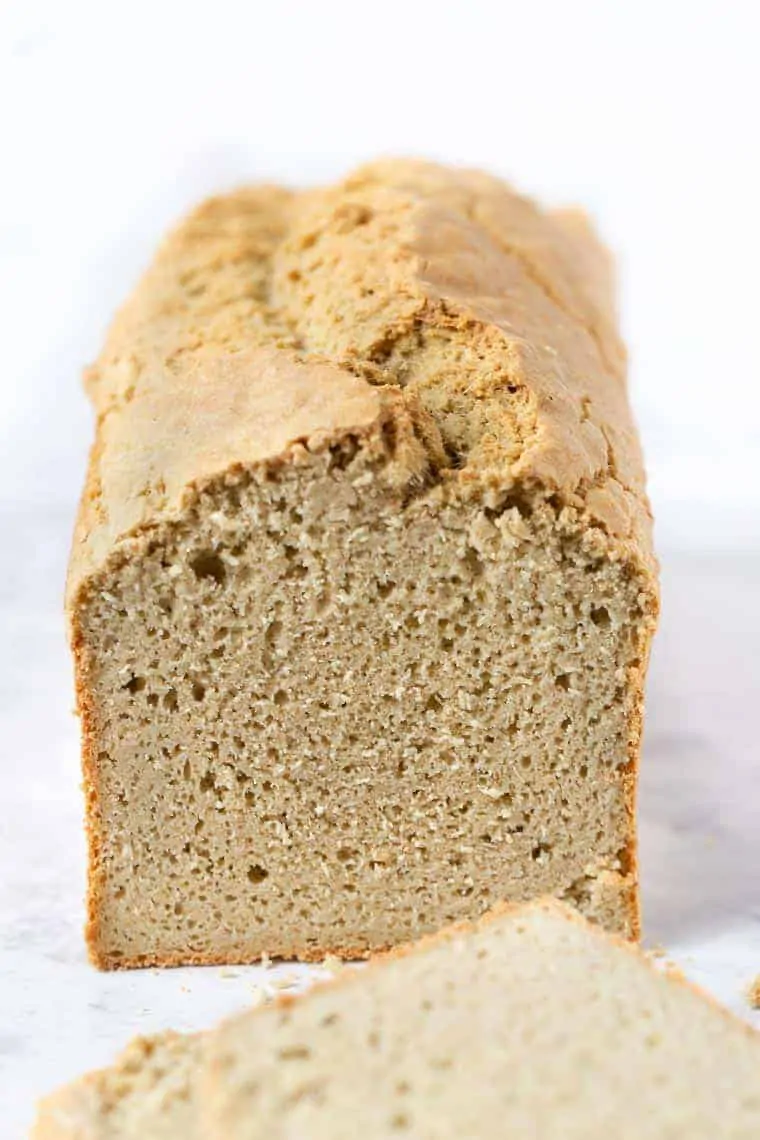
Many of you have been waiting a LONG time for this recipe and I am so super excited to finally be giving it to you! Today we're making an amazing gluten-free yeast-free bread recipe that is easy to make, super delicious and great for toast and sandwiches.
I've been gluten-free for nearly a decade now and bread is one of the things that I still struggle with. My high protein quinoa bread recipe has been my go-to for years, but a lot of people in this community can't tolerate yeast. Or they don't want to wait around for the yeast to rise.
So if that's you, this is your new go-to bread. It's still 100% gluten-free but uses no yeast and it only takes about 60 minutes.
The Pros and Cons of Yeast
There are a few pros and cons of using yeast. Not just in bread, but also in general. So let's talk about some of the pros and cons of yeast.
Pros of yeast:
- helps bread rise and get nice and fluffy
- creates a unique flavor in the bread
- the right amount can support a healthy gut
Cons of yeast:
- can be troublesome for folks with gastrointestinal issues or candida overgrowth
- yeasted baking takes extra time for the rising
- yeast can be quite finicky and needs to have a very specific temperature
- many people have allergies to yeast
I'm not someone who struggles with yeast, but I know many of you are, so I wanted to create a gluten-free yeast-free bread that you can make at home and still love.
So if you're a sandwich (or toast lover), but your body does not tolerate yeast, it can be hard to find a bread recipe that you can actually enjoy. That's exactly why I created this recipe for you 😊
Gluten-Free Bread Doesn't Need Yeast
When you're baking a yeast-free bread, the biggest concern is how to get the bread to rise without the yeast. Yeast is a leavening agent, and when used in combination with sugar and heat, it helps the bread to rise. So when you take the yeast out (along with most of the sugar), you need to add ingredients back in to give the loaf some height.
Baking powder/soda was an obvious choice, and because I tend to opt for using baking powder in my recipes, that's what I chose to do with this one. We're also using baking soda and apple cider vinegar for good measure!
But our other key to this recipe: eggs!
The Key to Gluten-Free Yeast-Free Bread
So next, I turned to the eggs. Eggs are another ingredient that can be used as a leavening agent. Eggs help to give baked goods more structure and help them to rise.
But since I wanted to be sure this bread would get the height it needed, rather than just adding my eggs as I normally would, I decided to beat my egg whites to stiff peaks and then fold them into the prepared batter. The extra air from the egg whites would provide even more structure and help the bread rise even higher.
The result? I'm glad I went with the eggs. This bread rose beautifully in the oven and couldn't have been easier to make – I mean really, how can you complain with no rising time!?
Can This Recipe be Made Egg-Free?
Now I know the first question I'm going to be asked is after I post this recipe is, “Can I make this without eggs?”. I want to address that now and tell you that honestly, I don't think so. This recipe relies on the structure that the eggs provide and helps the loaf rise, so I just don't know if it will work with a flax/chia replacement. If you're looking for a gluten-free vegan bread, check out this one from Cotter Crunch!
I will tell you however, I'm on a mission to create a gluten-free, dairy-free, yeast-free, egg-free quinoa bread that will still be tender and soft, that will toast nicely and that can be used for sandwiches. The task will be harder, and it might take me a few times to master, but I promise, I'm going to try my darndest to get that recipe nailed.
For now, if you can tolerate eggs, I recommend that you give this sandwich bread a try. I promise you won't be disappointed!
Substitution Ideas for This Gluten-Free Bread
And quickly before you go, let me give you a few quick ideas for substitutions:
- Quinoa flour: the best swap would be garbanzo bean flour
- Sorghum flour: quinoa or garbanzo bean flour
- Tapioca starch: another starch should work like arrowroot, corn or potato
- Almond milk: another milk will totally work!
- Apple cider vinegar: lemon or white wine vinegar
- Eggs: can't be replaced in this one!
- Maple syrup: honey or agave
- Olive oil: I think you could leave it out or replace it with water!
And now friends, you are ready to go. Ready to make this amazing bread and enjoy it for your morning toast and sandwiches. I hope you love it!
Also, make sure to leave a star rating if you end up trying this recipe ⭐️⭐️⭐️⭐️⭐️
More GF Bread Recipes to try:
- High Protein Quinoa Bread
- Quinoa Almond Flour Bread
- Almond Flour Chocolate Chip Banana Bread
- Quinoa + Almond Flour Pumpkin Bread
- Healthy Honey Oatmeal Banana Bread
Yeast-Free Quinoa Bread
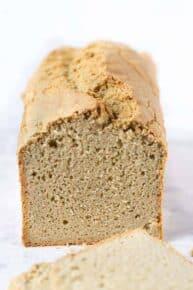
Ingredients
- 3 eggs separated
- 2 cups toasted quinoa flour
- 1 cup sorghum flour
- 1 cup tapioca starch
- 2 teaspoons baking powder
- 1 teaspoon baking soda
- 1 teaspoon guar gum
- 1/2 teaspoon sea salt
- 2 cups almond milk
- 2 teaspoons apple cider vinegar
- 1 tablespoon pure maple syrup
- 1 tablespoon olive / coconut oil melted
Instructions
- Preheat the oven to 350 degrees F. Grease an 8x4 loaf pan with cooking spray or line with parchment paper, and set aside.
- In a small mixing bowl, beat egg whites on high until they form stiff peaks, about 1 minute.
- In a separate, larger mixing bowl, whisk together dry ingredients. Add in milk, vinegar, egg yolks, syrup and oil and beat until smooth. Fold in egg whites.
- Transfer batter to prepared loaf pan and baking on center rack for 55 - 60 minutes.
- Remove from oven, let cool in pan for 10 minutes, then transfer to a wire rack and cool completely.
- Slice and serve.
